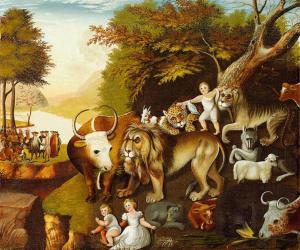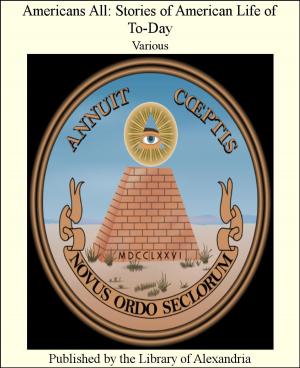My Memoirs (1802 to 1833)
Nonfiction, Religion & Spirituality, New Age, History, Fiction & Literature| Author: | Alexandre Dumas | ISBN: | 9781465593535 |
| Publisher: | Library of Alexandria | Publication: | March 8, 2015 |
| Imprint: | Language: | English |
| Author: | Alexandre Dumas |
| ISBN: | 9781465593535 |
| Publisher: | Library of Alexandria |
| Publication: | March 8, 2015 |
| Imprint: | |
| Language: | English |
There is no real biography of Alexandre Dumas. Nobody has collected and sifted all his correspondence, tracked his every movement, and pursued him through newspapers and legal documents. Letters and other papers (if they have been preserved) should be as abundant in the case of Dumas as they are scanty in the case of Molière. But they are left to the dust of unsearched offices; and it is curious that in France so little has been systematically written about her most popular if not her greatest novelist. Many treatises on one or other point in the life and work of Dumas exist, but there is nothing like Boswell's Johnson or Lockhart's Scott. TheMémoires by the novelist himself cover only part of his career, Les Enfances Dumas; and they bear the same resemblance to a serious conscientious autobiography as Vingt Ans Après bears to Mr. Gardiner's History of England. They contain facts, indeed, but facts beheld through the radiant prismatic fancy of the author, who, if he had a good story to tell, dressed it up "with a cocked hat and a sword," as was the manner of an earlier novelist. The volumes of travel, and the delightful work on Dumas's domestic menagerie,Mes Bêtes, also contain personal confessions, as does the novel, Ange Pitou, with the Causeries, and other books. Fortunately Dumas wrote most about his early life, and the early life of most people is more interesting than the records of their later years. In its limitation to his years of youth, the Mémoires of Dumas resemble that equally delightful book, the long autobiographical fragment by George Sand. Both may contain much Dichtung as well as Wahrheit: at least we see the youth of the great novelists as they liked to see it themselves. The Mémoires, with Mes Bêtes, possess this advantage over most of the books, that the most crabbed critic cannot say that Dumas did not write them himself. In these works, certainly, he was unaided by Maquet or any other collaborator. They are all his own, and the essential point of note is that they display all the humour, the goodness of heart, the overflowing joy in life, which make the charm of the novels. Here, unmixed, unadulterated, we have that essence of Dumas with which he transfigured the tame "copy" drawn up by Maquet and others under his direction. He told them where to find their historical materials, he gave them the leading ideas of the plot, told them how to block out the chapters, and then he took these chapters and infused into them his own spirit, the spirit which, in its pure shape, pervades every page of the Mémoires. They demonstrate that, while he received mechanical aid from collaborators, took from their hands the dry bones of his romances, it was he who made the dry bones live. He is now d'Artagnan, now Athos, now Gorenflot, now Chicot,—all these and many other personages are mere aspects of the immortal, the creative Alexandre.
There is no real biography of Alexandre Dumas. Nobody has collected and sifted all his correspondence, tracked his every movement, and pursued him through newspapers and legal documents. Letters and other papers (if they have been preserved) should be as abundant in the case of Dumas as they are scanty in the case of Molière. But they are left to the dust of unsearched offices; and it is curious that in France so little has been systematically written about her most popular if not her greatest novelist. Many treatises on one or other point in the life and work of Dumas exist, but there is nothing like Boswell's Johnson or Lockhart's Scott. TheMémoires by the novelist himself cover only part of his career, Les Enfances Dumas; and they bear the same resemblance to a serious conscientious autobiography as Vingt Ans Après bears to Mr. Gardiner's History of England. They contain facts, indeed, but facts beheld through the radiant prismatic fancy of the author, who, if he had a good story to tell, dressed it up "with a cocked hat and a sword," as was the manner of an earlier novelist. The volumes of travel, and the delightful work on Dumas's domestic menagerie,Mes Bêtes, also contain personal confessions, as does the novel, Ange Pitou, with the Causeries, and other books. Fortunately Dumas wrote most about his early life, and the early life of most people is more interesting than the records of their later years. In its limitation to his years of youth, the Mémoires of Dumas resemble that equally delightful book, the long autobiographical fragment by George Sand. Both may contain much Dichtung as well as Wahrheit: at least we see the youth of the great novelists as they liked to see it themselves. The Mémoires, with Mes Bêtes, possess this advantage over most of the books, that the most crabbed critic cannot say that Dumas did not write them himself. In these works, certainly, he was unaided by Maquet or any other collaborator. They are all his own, and the essential point of note is that they display all the humour, the goodness of heart, the overflowing joy in life, which make the charm of the novels. Here, unmixed, unadulterated, we have that essence of Dumas with which he transfigured the tame "copy" drawn up by Maquet and others under his direction. He told them where to find their historical materials, he gave them the leading ideas of the plot, told them how to block out the chapters, and then he took these chapters and infused into them his own spirit, the spirit which, in its pure shape, pervades every page of the Mémoires. They demonstrate that, while he received mechanical aid from collaborators, took from their hands the dry bones of his romances, it was he who made the dry bones live. He is now d'Artagnan, now Athos, now Gorenflot, now Chicot,—all these and many other personages are mere aspects of the immortal, the creative Alexandre.















